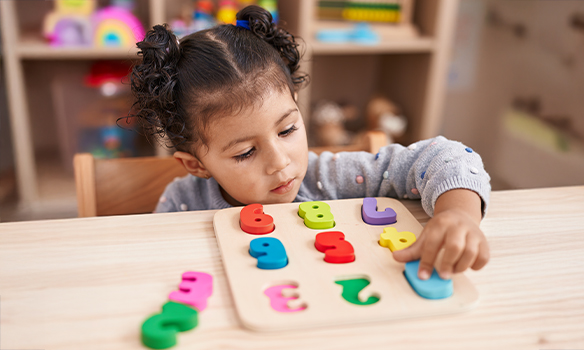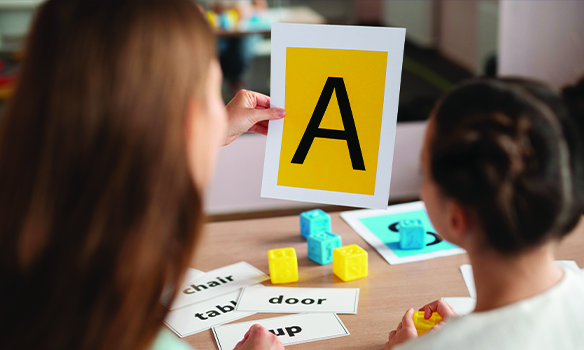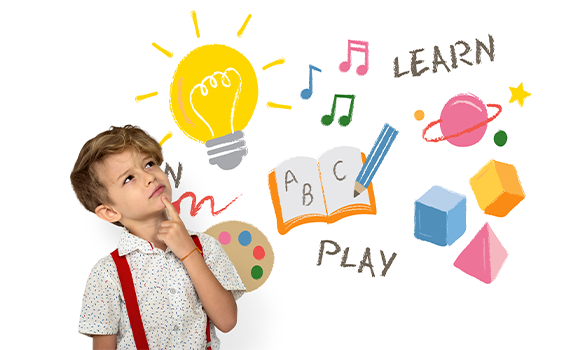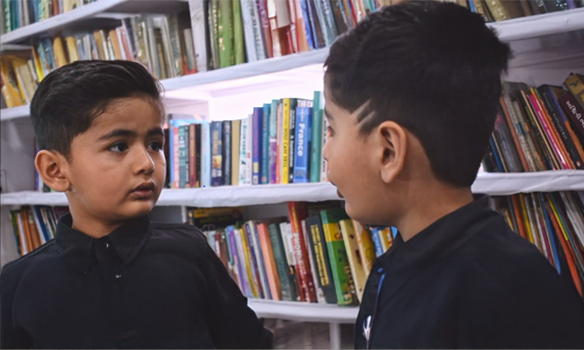Financial literacy for kids
Vince Shorb, CEO of National Finance Educators, USA, quoted, “College graduates
spent 16 years gaining skills that will help them command a higher salary; yet little or no
time is spent helping them save, invest and grow their money.”
It may not sound important right now, but it is correct. Saving, investing and growing
money are essential life skills. Look back into your life and see where you struggled,
and amongst all the things that you will find about yourself, you will realise that money
was a delicate and vital subject. It would also have been a topic of discussion with
friends and family members. How much to save, what to spend, how to differentiate
between wants and needs, where to invest, and which schemes are beneficial and
profitable are difficult things to work on. It’s such an important part of life that it should
be a part of our school curriculum but it’s not. Many research articles suggest that some
financial habits are set as early as the age of 7. Hence, teaching them the right things at
a young age becomes critical.
Reasons, why kids should learn about finances, are:
- To be able to distinguish between needs and wants from a young age
- To be able to understand the importance of opportunity cost
- To be able to become financially independent without many hardships
- To be able to learn about saving and investing
- To develop their emotions and approach toward money
6. To be able to value money
Here are some ways in which you can introduce your kids to financial literacy:
Give them a monthly allowance
In India, the practice of giving children a monthly allowance is not very common.
Most parents provide for everything that their children need and want. It goes
beyond and above just the basics and there is nothing wrong in providing for your
children, but this way, children will not understand the value of money and saving
it. Providing a small amount of allowance can help them make their own
decisions when it comes to saving money and purchasing what they want. They
may make wrong decisions to start off with but that’s how they will learn from
their mistakes. Lessons are learnt better from practical experiences compared to
when they come from adults.
Make them earn their monthly allowance
Create a concept of incentives along with the monthly allowance or make them
earn their monthly allowance. It may sound harsh, but it is not. Earning an
allowance can help them understand the value of work and money from a young
age. This way, they will also learn which wants they should really spend on. In
addition to that, they will learn to contribute too little tasks that you create. These
tasks can include helping out in the kitchen, cleaning up their bedroom, cleaning
the car, buying groceries, etc.
Have them contribute to their personal non-essential purchases
Many kids demand things that they don’t really need. As parents, it becomes
your decision whether you want to buy them what they want. It is a difficult
decision but through this, you can teach your children to contribute toward what
they want. Ask them about their savings and how much would they be willing to
contribute towards what they want. This teaches them how to live in a community
and the importance of contributions. These contributions don’t have to be equal.
They are about what your child and you can together afford.
Instil a habit of saving
The concept of saving is difficult for a child so you need to teach them how to
save. They can start by saving 5-10% of their monthly allowance. You can help
them set goals about what they want to do with their savings. For eg- If your child
wants a video game, you can tell him about how much he/she needs to save for
3-6 months every month in order to buy it. This is known as goal-oriented saving.
And, we all know when we have a strong goal, it becomes easier to work on it.
Play games with them
Finance via games is a fun way to teach children about money. It doesn’t involve
the stress of real money but the concepts and lessons learnt through these
games are very real. Some of the games that can help children understand
finances are- Monopoly, Cash Puzzler, Counting with Coins and Wise Pockets.
You can look these games up online and see what suits you the best for you and
your children.
Open a bank account
There are many banks that are now coming up with debit cards that kids and
teens can use. You can open an account for your kids in these banks and teach
them how to operate them. Some of these banks include IB, HDFC, SBI and
Kotak Bank. Operating their own bank accounts and understanding concepts like
interest rates can prepare them for a better future.
Have honest conversations about money
Try to have basic and honest conversations about money. Talk to them about
what you do to save money, and how you divide your paychecks. Try to have
simple conversations because we are also trying to develop their personalities
around money and the idea of this exercise is in no way to stress them or teach
them about any kind of abundance.
Read books that talk about finances for children with them
Reading books about money is never a bad idea. Books have the power to enlighten like nothing else. These books will also help them frame their individual thoughts better. Some books on finances for kids include:
- If You Made a Million by David Schwartz
- Money Ninja by Mary Nihn
- Money Math by David Adler
- A Chair for My Mother by Vera Williams
- Money Plan by Monica Eaton
Little Genius encourages financial literacy for kids. Our Business Program and
Management skills are built in a way that teaches them some important money lessons.
We hope this article helps you in teaching your children some very important financial
lessons.
Related Blogs

Early Learning in Nagpur: Using Phonics and Math to Build Strong Foundations for 3-Year-Olds

















































































